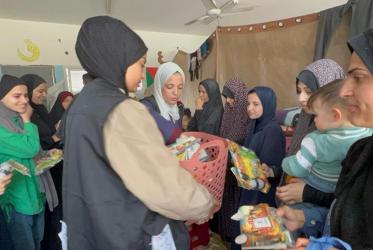Displaying 1 - 20 of 556
WCC condemns killing of aid workers in Gaza
03 April 2024
What can churches do to prevent modern slavery?
22 February 2024
WCC submits comments on draft UN “Pact for the Future”
12 February 2024
Displaced people south of Gaza face extreme difficulty
21 December 2023








